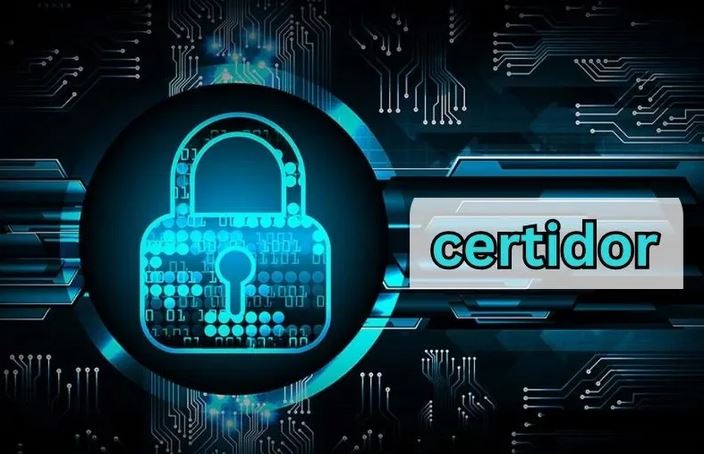Introduction to Certidors
Are you curious about the world of certifications and what it means to be a Certidor? The concept may sound niche, but it’s becoming increasingly relevant in various industries. As organizations strive for credibility and excellence, individuals who hold certification play a crucial role in establishing trust and quality. Whether you’re looking to enhance your career or simply want to understand this emerging role better, diving into the life of a Certidor reveals numerous opportunities waiting just around the corner. Let’s embark on this journey to uncover what being a Certidor entails and why it might be the perfect fit for you!
What is a Certidor?
A Certidor is an individual who holds a certification that validates their expertise in a specific field. This distinction showcases their knowledge, skills, and commitment to professional standards.
Certidors often undergo rigorous training and assessments to earn this title. They are recognized for their ability to apply best practices and uphold industry regulations.
These professionals play a crucial role across various sectors, including education, healthcare, finance, and technology. Their presence fosters trust among clients and stakeholders.
By embodying excellence in their respective domains, Certidors contribute significantly to the growth of organizations. They ensure that processes meet quality benchmarks while promoting innovation.
The History and Evolution of Certification
Certification has deep roots in various cultures, dating back to ancient civilizations. Guilds in medieval Europe established standards for craftsmen, ensuring quality and skill. This marked the early beginnings of formal recognition.
As industries evolved, so did certification processes. The 20th century saw a surge in professional organizations creating standardized exams and credentials. These became vital for establishing legitimacy within fields like medicine, engineering, and education.
With globalization came the need for universal standards. International bodies emerged to create frameworks that transcend borders. Today’s certifications often reflect industry-specific competencies along with ethical practices.
Digital advancements have transformed how certifications are obtained and maintained. Online courses provide accessible pathways to learning, making it easier than ever for individuals to gain credentials from anywhere in the world.
This dynamic history continues as new technologies reshape professions and necessitate ongoing adaptation within certification systems.

The Role of Certidors in Today’s Society
Certidors play a crucial role in maintaining standards across various industries. They ensure that professionals meet specific criteria, fostering trust and reliability.
In today’s fast-paced world, the demand for certified expertise has surged. Certidors help bridge gaps between consumers and service providers by validating credentials. This enhances transparency in sectors like healthcare, education, and technology.
Moreover, they contribute to professional development by encouraging continuous learning. By endorsing ongoing training and certifications, Certidors keep skills relevant amid rapid advancements.
Their influence extends beyond individual careers; it impacts entire organizations as well. Companies with certified employees often experience improved performance and increased customer satisfaction.
As society grows more interconnected through globalization, Certidors become essential navigators of quality assurance within diverse markets. Their efforts lead to higher standards that benefit everyone involved—clients, professionals, and businesses alike.
Benefits of Becoming a Certidor
Becoming a Certidor opens doors to numerous opportunities. It positions you as an authority in your field, enhancing your credibility and professional reputation.
As a recognized expert, you can attract clients and collaborations more easily. People seek trusted individuals who can guide them through complex processes.
Additionally, there’s potential for financial rewards. Many Certidors enjoy lucrative contracts or consulting fees due to their specialized skills and knowledge.
The community aspect is another significant benefit. Engaging with other Certidors fosters networking opportunities that can lead to partnerships or mentorships.
Moreover, personal growth is inevitable on this journey. The continuous learning involved sharpens your expertise while keeping you updated with industry trends.
Contributing positively to society gives immense satisfaction. By providing certification services, you’re helping others validate their skills and achievements, making a difference in various sectors.
How to Become a Certidor
Becoming a Certidor involves a clear path of education and dedication. First, research the requirements specific to your area of interest. Different fields may have varying criteria for certification.
Next, consider enrolling in relevant courses or training programs that focus on certification standards. These can provide valuable knowledge and skills necessary for success.
After completing educational requirements, it’s time to gain practical experience. This often involves internships or volunteer positions where you can apply what you’ve learned in real-world scenarios.
Once you’re ready, prepare for any examinations required by your certifying body. Study guides and practice tests can be beneficial during this phase.
Submit your application along with any documentation needed to prove your qualifications. Stay engaged with ongoing education opportunities to maintain your status as a certified professional over time.
Challenges and Responsibilities of Being a Certidor
Being a Certidor comes with its own set of challenges. One primary responsibility is staying updated on industry standards and regulations. The certification landscape can change rapidly, demanding continuous education.
Another challenge involves managing client expectations. As a Certidor, you must communicate complex information clearly while ensuring that clients feel supported throughout the process.
Time management also plays a crucial role. Balancing multiple certifications and projects requires prioritization skills to meet deadlines without compromising quality.
Additionally, ethical dilemmas may arise in this position. Certidors often face decisions that test their integrity and commitment to upholding standards within the field.
Networking can be both an opportunity and a challenge for Certidors. Building relationships is essential for growth but requires effort and dedication in nurturing those connections over time.
Conclusion
Becoming a Certidor opens up a world of opportunities. It’s not just about the title; it’s about being part of a community that values integrity, knowledge, and commitment to excellence. The journey may come with its challenges, but the rewards are immense.
As society continues to evolve, so does the importance of certifications in various fields. Certidors play a crucial role in maintaining standards and ensuring quality across industries. Their expertise fosters trust among clients and promotes professionalism within their sectors.
